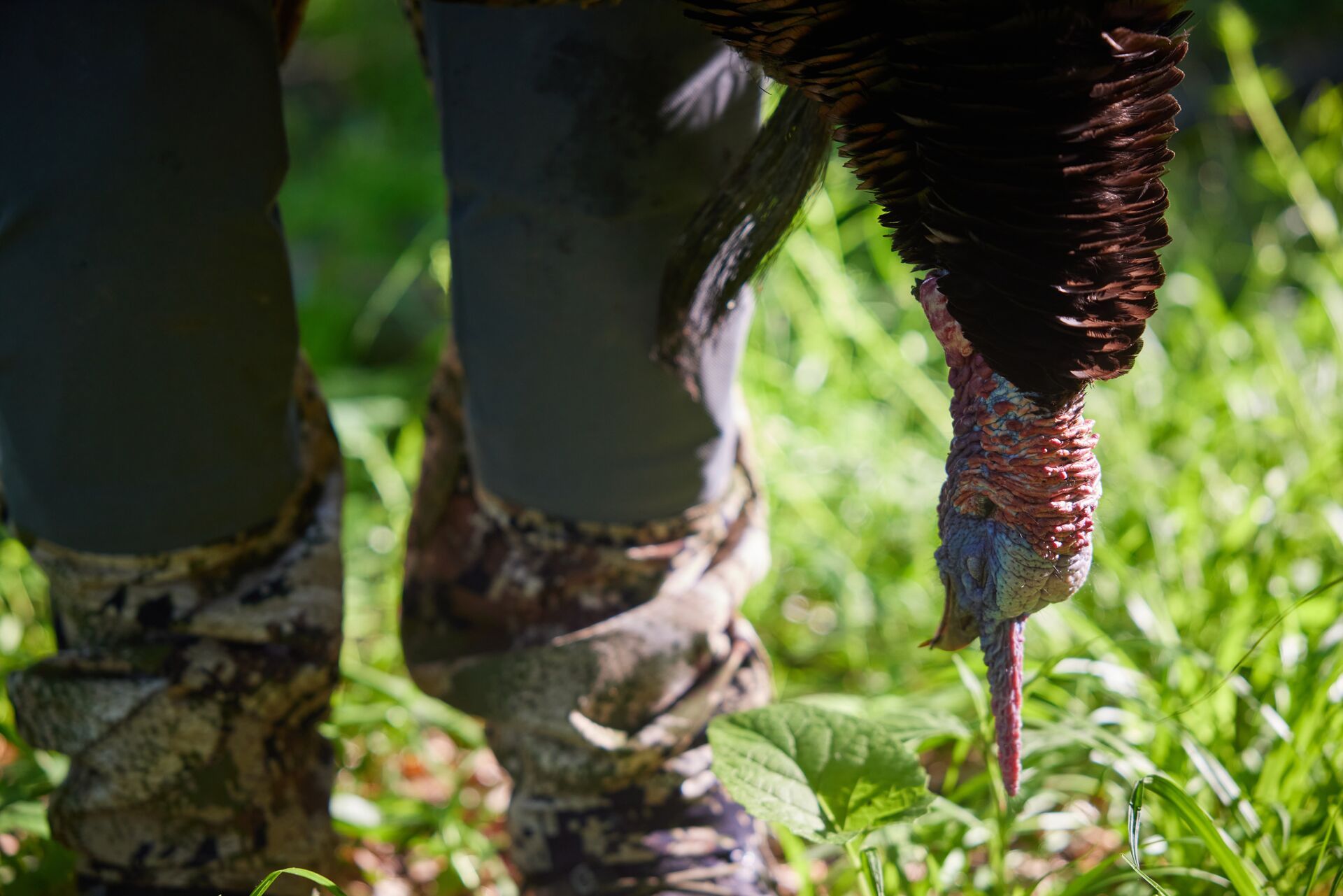Whether you're a new hunter and you've just killed your first bird or you're a seasoned hunter out for another spring hunt, scouting, hunting, and shooting a bird is only part of the adventure we call turkey hunting. To finish the job, you have to get the bird home and prepared to eat.
So, today, we talk about what to do after the shot to make sure your turkey hunt is a successful harvest.
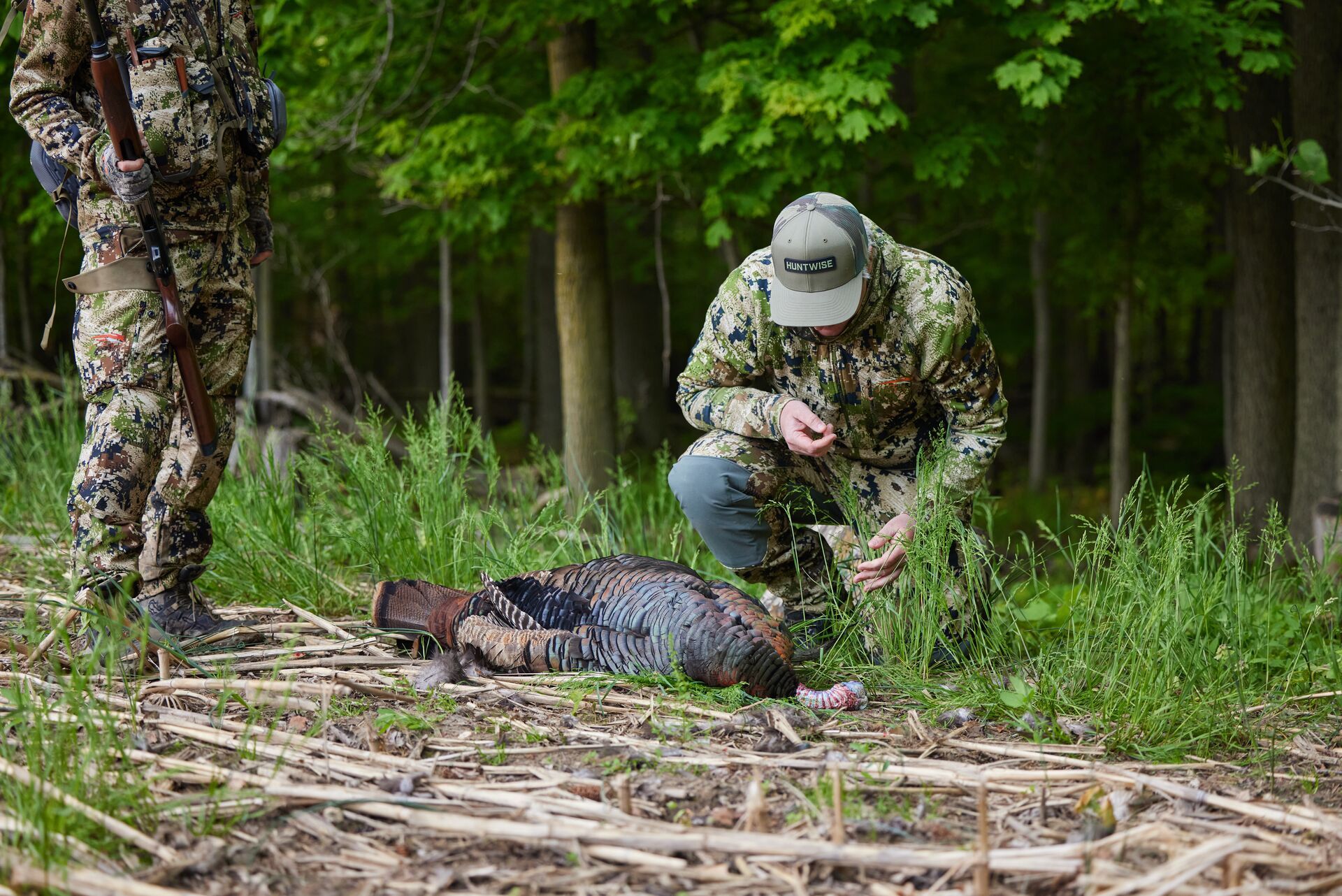
What Happens After You Shoot a Turkey?
If you've ever witnessed a wild turkey in its final moments, then you know it's not always a peaceful passing.
Only on a few occasions have I harvested a bird that did very little to no flopping. They sometimes tend to fly away after being injured as well.
A clean kill shot is always crucial when pursuing any wild game. A bad shot can lead to a wounded bird that will most likely succumb to its injuries or be easily picked off by a predator.
If you happen to make a bad shot, always be prepared for a follow-up shot if possible.
Following an Injured Bird
If the bird takes off on you, your next move is to track it.
Pick the closest landmark to where the bird was last seen. Go to that reference point and drop an object to mark the spot. It is also a great idea to drop a pin in your HuntWise app and add a photo of the landmark to its dropped pin. You never know if you may need to leave and come back.
Next, locate the area where the bird was when the gun went off; it should be relatively easy to find. A good amount of feathers is usually the indicator.
Once those tasks are finished, I like to search for blood and feathers between them. Depending on how much feather and blood you find, it can give you some insight into how well your shot may have been.
Don't Rush When Tracking
After some time passes, slowly ease past your last reference point. Continue to track the bird, if possible, looking for ruffled leaves, feathers, and blood along the way.
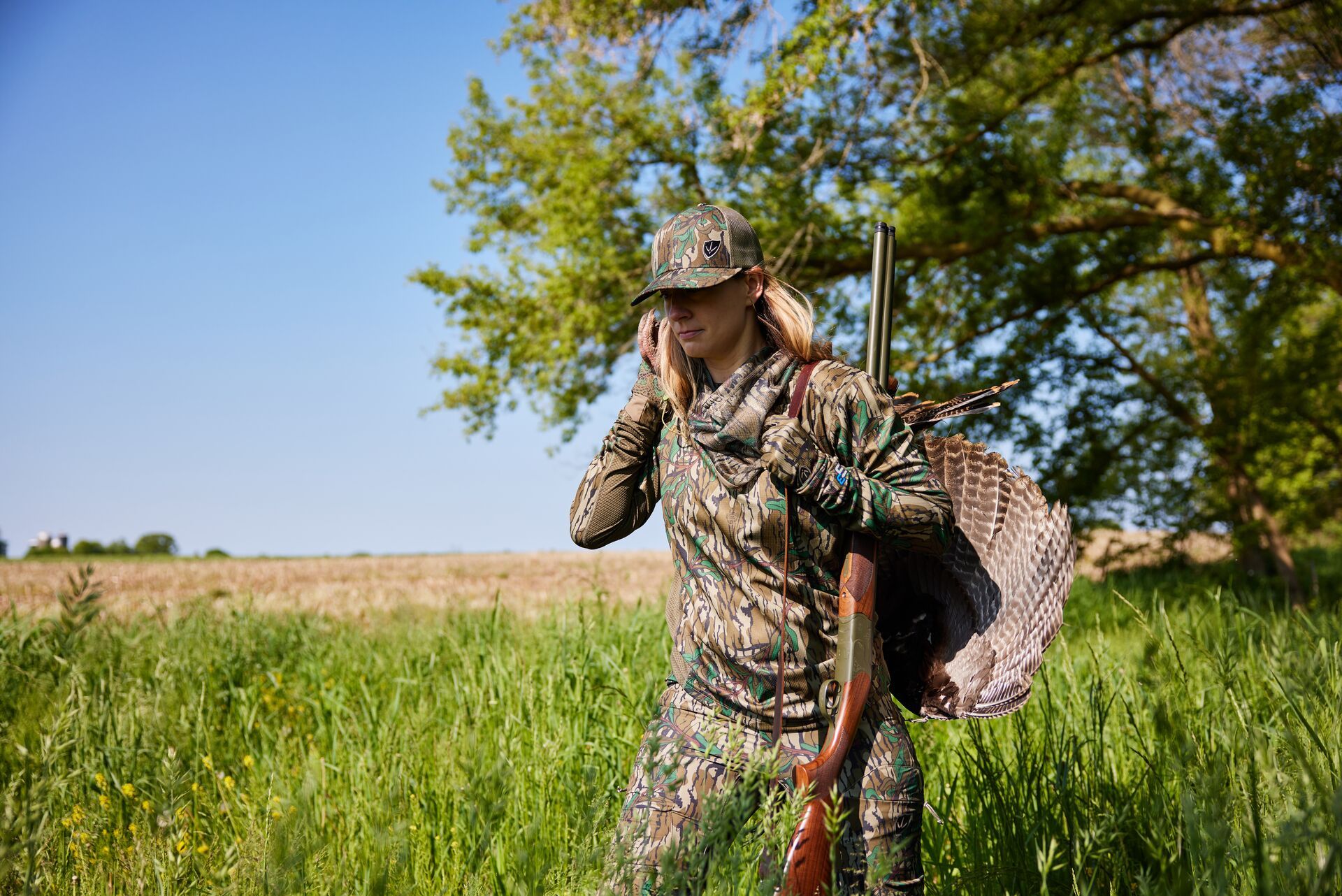
What To Do When You Find Your Bird
You found the bird! It has yielded itself over after taking its final breath.
Remember to be careful; sometimes, they will throw a few sneak kicks even as they breathe for the last time. You don't want to be on the receiving end of those feet and spurs.
The best way to carry a bird out would be to have either a backpack large enough or a turkey vest with a bird pouch. You can also grab both legs in one hand above the spurs. Pick the bird up and throw it over your shoulder if you do not have any other means of packing it out.
I have also seen people use cordage made into a sling. You just loop the feet through one end and the head through the other end.
How to Process Your Bird
After the bird has been checked in and you've arrived home, it's time to process the harvest.
Before I start with any meat, I like to remove the tail fan, wings, beard, and spurs — mostly because those are the trophy aspects of the game.
To remove the tail fan, you first start by folding all of its feathers together. Grab them with one hand, similar to how you would hold an empty paper towel roll. Cut above the bird's anus and follow the quills.
Then, start your last cut on top towards the end of your first cut. Remove any excess flesh and smaller feathers in that area.
Doing the wings is also a very similar process. Once the wings and tail fan are prepped, grab a sturdy piece of cardboard or plywood. Spread them out to your desired liking and pin them into place with thumbtacks or small nails.
When removing the turkey's beard, I like to pull on it and cut roughly an inch past its base into the flesh. I have also seen people grab the beard and just pop it off with a good tug.
Removing the spurs requires a hacksaw or something similar for easy removal. I usually cut 1/2-3/4 of an inch above and below the spurs. Clean out the tendons and flesh inside of the hollow cavity.
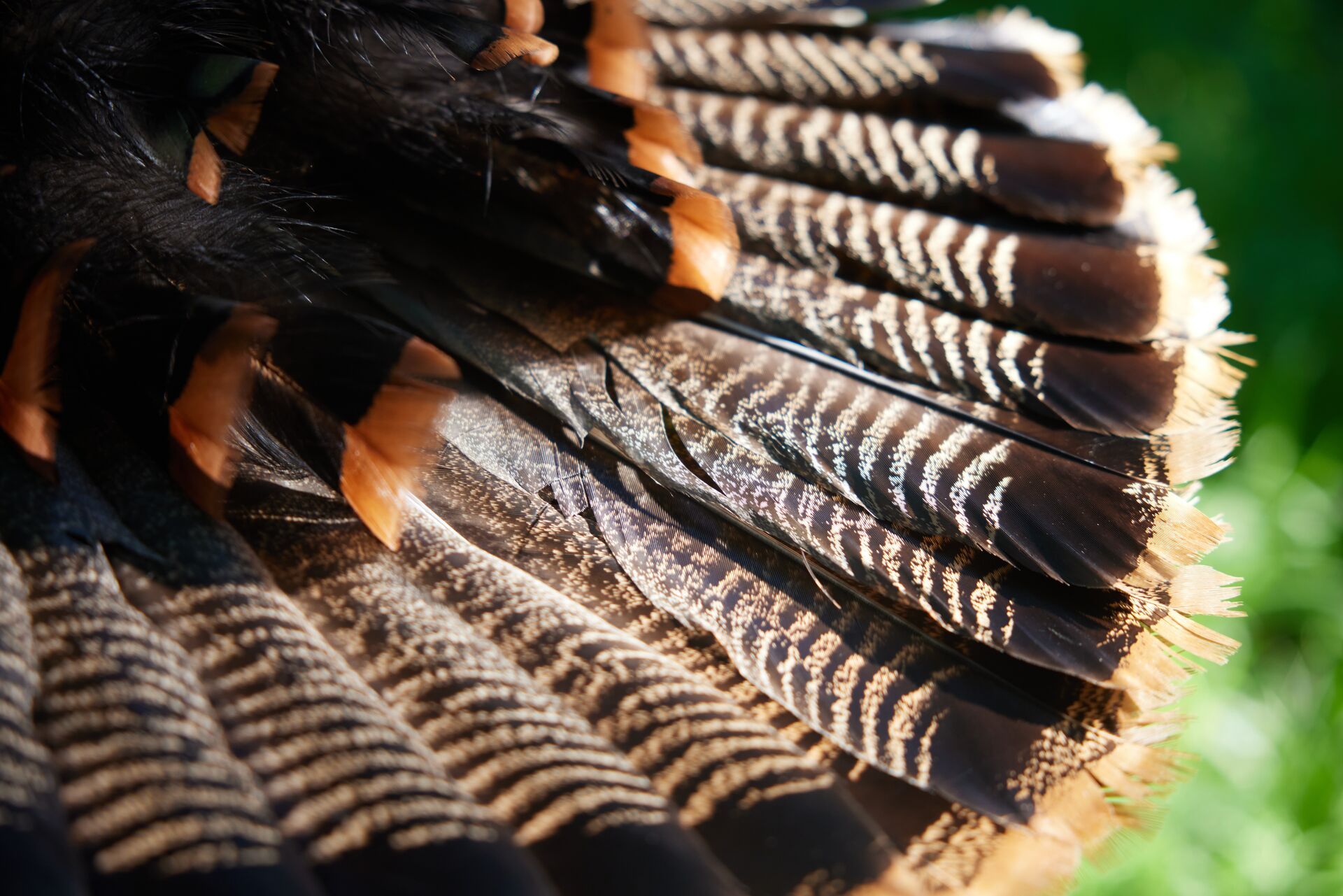
Treat Your Turkey Hunting Trophy Pieces
Now, your trophy pieces need to be treated. You can buy tanning/drying solutions, but believe it or not, salt works really well. Apply your desired product to the fleshy areas that are or were present.
Once cured, you can do a board mount, nail them to a post in your garage, use them on decoys to add more realism to their appearance, etc. Personally, I keep the wings and tail fan for my strutter decoy. As for the beard and spurs, I string them up on a fishing stringer.
Process the Meat
After a successful turkey hunt, prepping for processing is relatively easy.
Start by locating its breast bone and pluck some of the feathers along the ridge of the bone. Take your knife and cut down through the breast, making sure to stay close to the bone.
Once that's completed, start skinning the hide away from the breast. Lastly, finish removing the breast by making a few smaller cuts on the bottom side.
Most hunters tend to stop processing after the breasts have been removed. I, on the other hand, love a good ole turkey drumstick! They tend to be a little tough, but that is why I pressure cook them for a short duration before prepping them your favorite way.
As for recipes, you're on your own! My wife is the queen of her kitchen, and boy, does she know how to cook. I leave the cooking up to her, and she leaves bringing home the bacon (or turkey) to me.
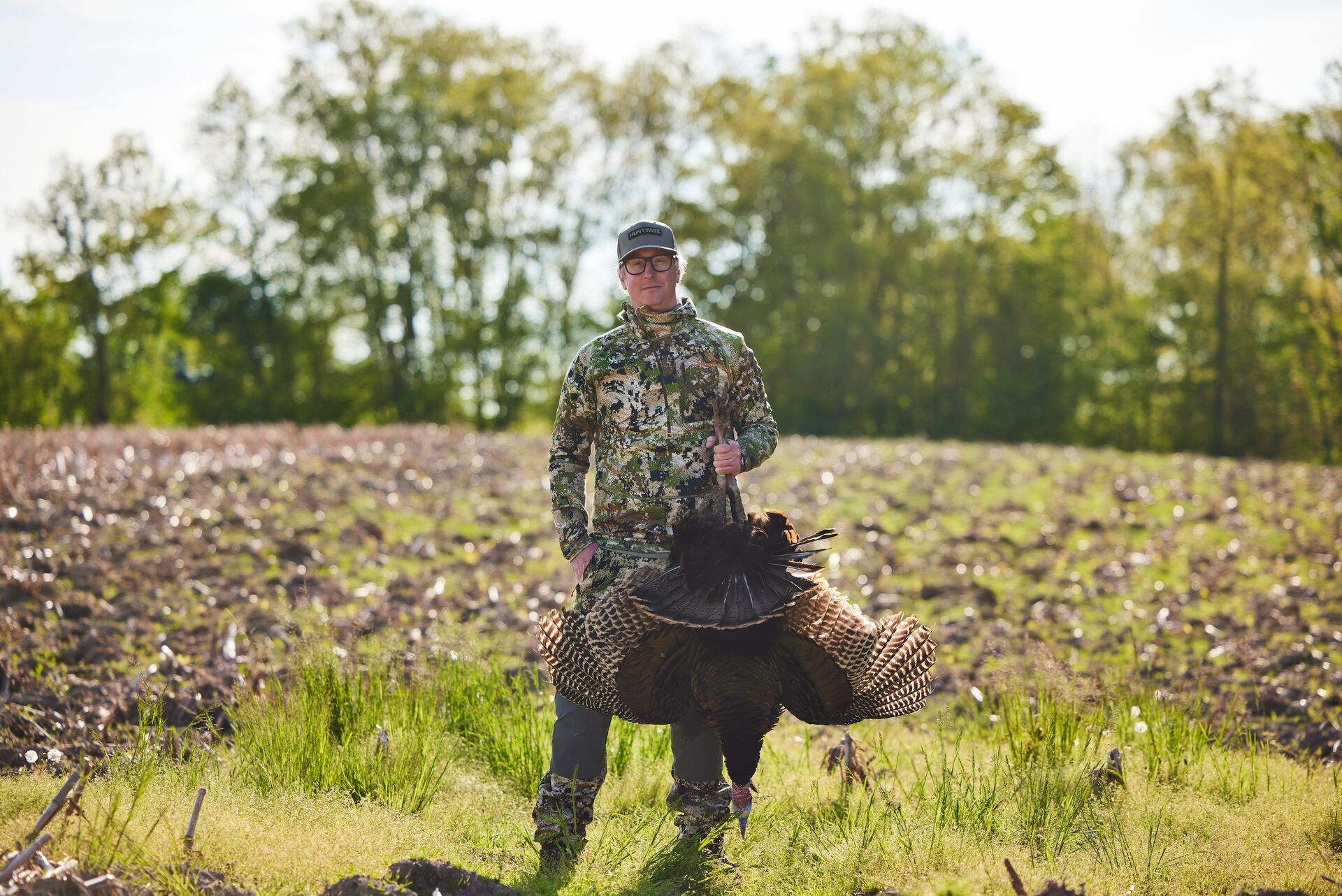
Bring Home the Turkey With HuntWise
Before you can process a bird, you have to bring one home! Turkey hunting is a rewarding way to enjoy delicious meat, and there's no better way to find a hunting area and set up your blind for success than by using the HuntWise app to scout and plan your hunt.
With various map layers and tools, markers, HuntCast weather forecasting, and gobbler-specific insights to plan successful days in the field, HuntWise is the ultimate hunting tool to help find and track birds (if necessary) so you never lose a harvest.
So, before you get after your next bird, download HuntWise and explore it free for your first week!
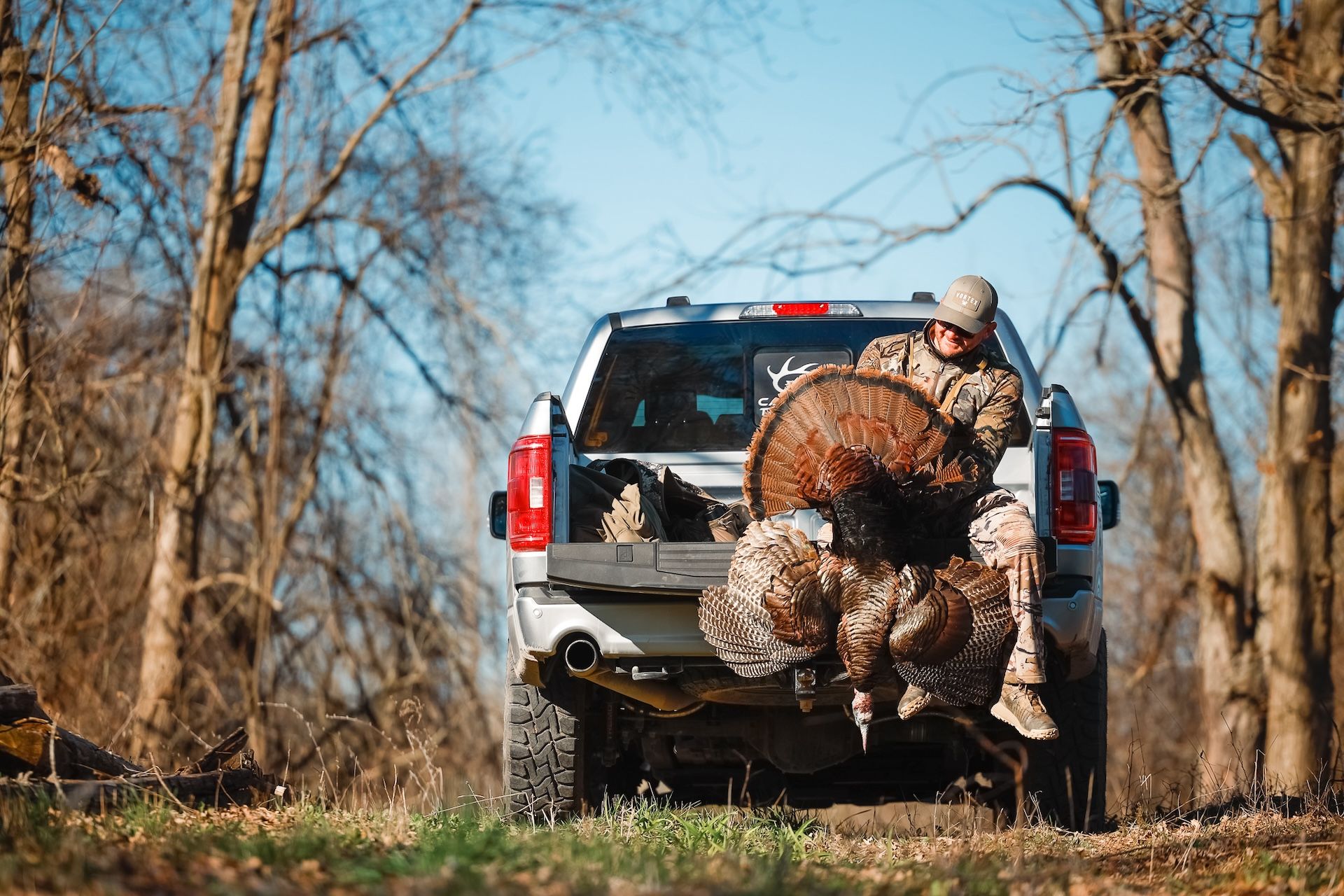
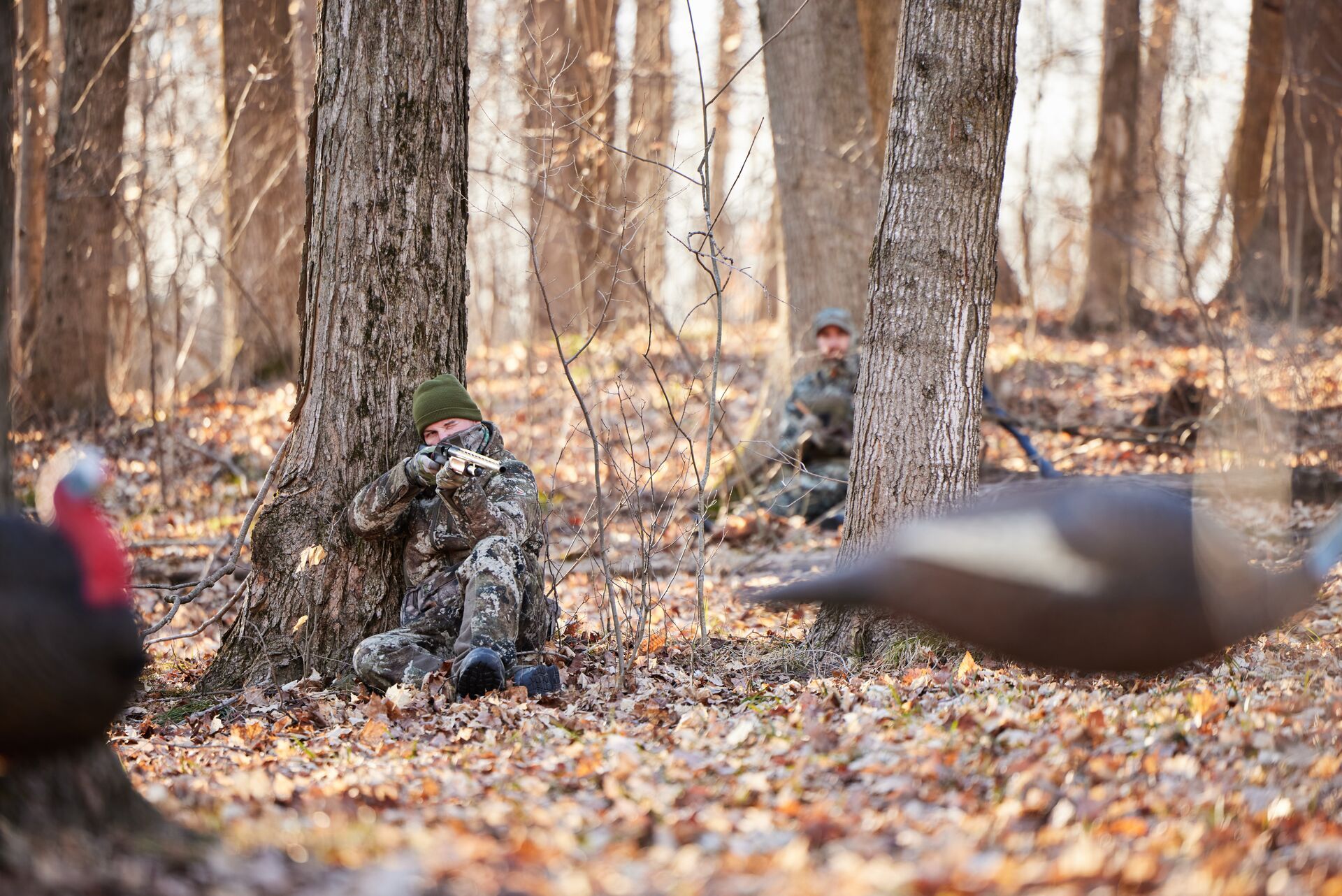
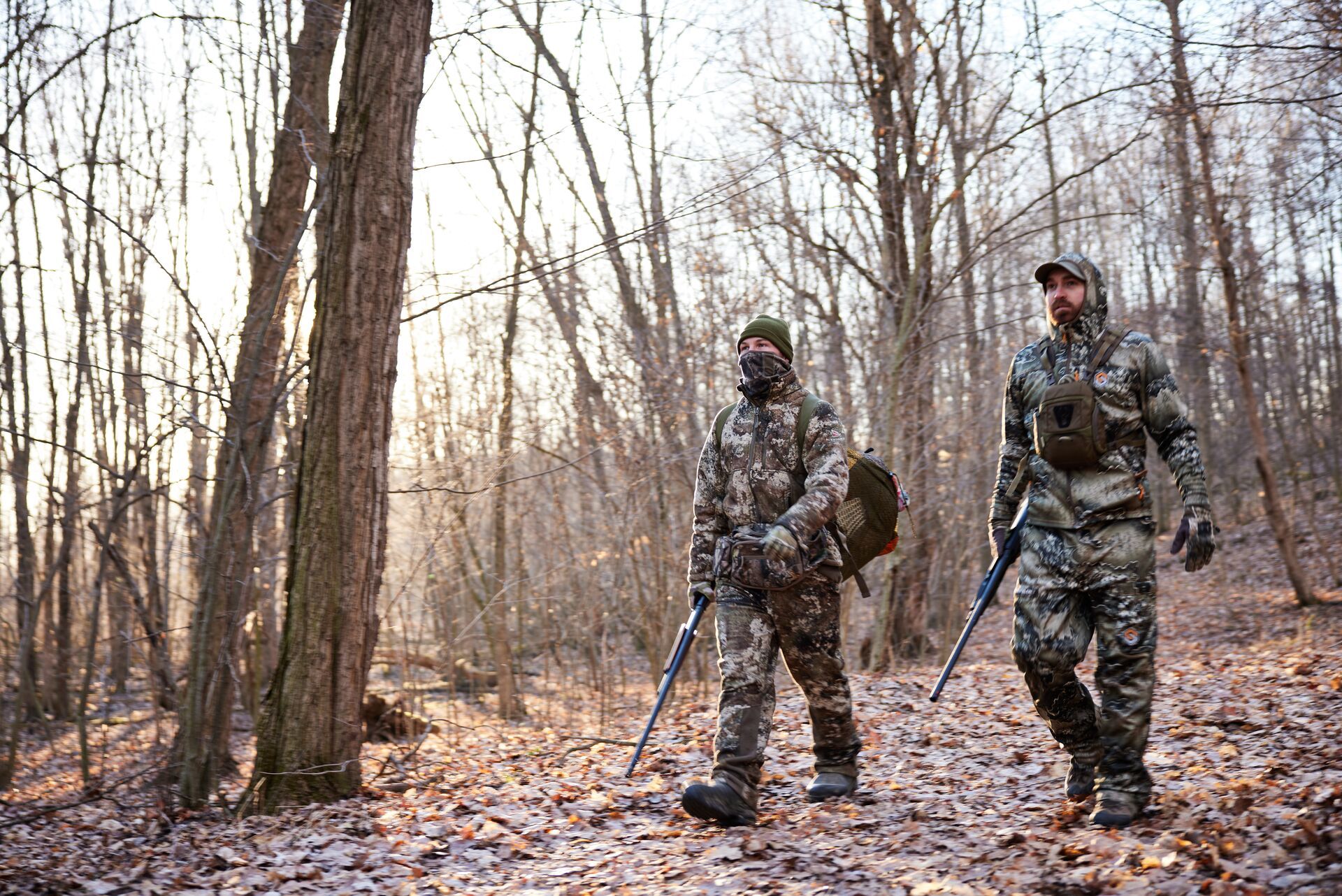
 Turkey
Turkey Turkey
Turkey Turkey
Turkey